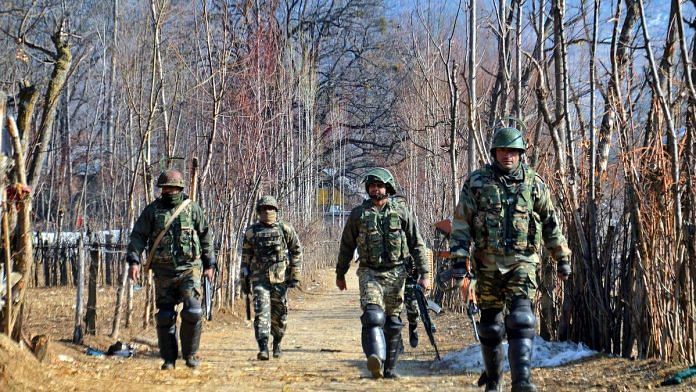Indian Army sources said there was no opposition to the proposals made by the chief at the ongoing commanders’ conference, just differences of opinion.
New Delhi: The Indian Army is set to test new concepts such as ‘integrated battle groups’ as part of the reforms process initiated by chief General Bipin Rawat, senior defence sources have told ThePrint. The concepts will be tested on major formations before they are rolled out across the force, the sources added.
The reforms were discussed during the ongoing Army commanders’ conference, which is a biannual affair.
Army sources said discussions at the conference, attended by the chief, the seven regional commanders, the vice-chief, and principal staff officers to the chief, were held in a collegiate manner. It will continue till Monday.
This is the first time in 35 years that the Army is deliberating a restructuring of its cadre that will impact its strictly hierarchical command structure among officers, from Lieutenant Generals at the top to Lieutenants at the bottom.
The reforms coincide with steps taken by the Modi government to restructure the security architecture of the country, including reconstituting the strategic policy group under national security adviser Ajit Doval.
The Army’s push is being guided by four studies commissioned by General Rawat earlier this year, on:
#Reorganisation and right-sizing of the Indian Army
#Re-organisation of the Army headquarters
#Cadre review of officers
# Review of terms and engagement of rank and file
“It has also been decided that all operational aspects of the studies will be validated through test-bedding them in exercises,” said a statement issued by the Army Saturday.
“The collegium has concluded that the above studies will be implemented progressively in a phased manner,” the statement added.
“The phases will comprise requisite refinements of the studies making them pragmatic for implementation,” the statement said.
Also read: Indian Army chief wants to revolutionise the military — by cutting manpower
‘A 360-degree evaluation’
Army sources said there was no opposition to the proposals made by the chief but there were differences of opinion despite a general agreement on making the force more agile and lethal.
“During the deliberations, many options have been discussed and it has been decided that all value-inputs will be factored (in), and a 360-degree evaluation will be undertaken,” said Army spokesperson Colonel Aman Anand.
“There will be course-corrections if required and they will be implemented with specific timelines,” he added.
The commanders are also discussing longer tenures for “flag ranks” – Major Generals and Lieutenant Generals – “to ensure better continuity, achievements of objectives and aspirations”.
The statement explained that longer tenures would result in fewer selection boards, without any decrease in vacancies in the higher ranks.
Marked out separately in the agenda was the need to “enhance linguistic skills in the Army”.
Also read: Indian Army reforms: Cutting administrative flab or needless downsizing?
This is meant to encourage officers to become experts in local languages, especially Urdu and Kashmiri, and international languages, especially Chinese and English.
The Indian Army has 12.5 lakh personnel. The current discussions on reform were initiated after the Army chief issued a note on 12 July, saying that the brass was keen on pushing through proposals that would reduce the size of the headquarters staff, call reservists if required, and create integrated battle groups comprising five-to six battalions that may substitute divisions in some formations.




A normal tenure is insufficient to see something like this through. It would be good if, after retirement, purely in an honorary capacity, General Rawat could continue to contribute to this welcome reform.